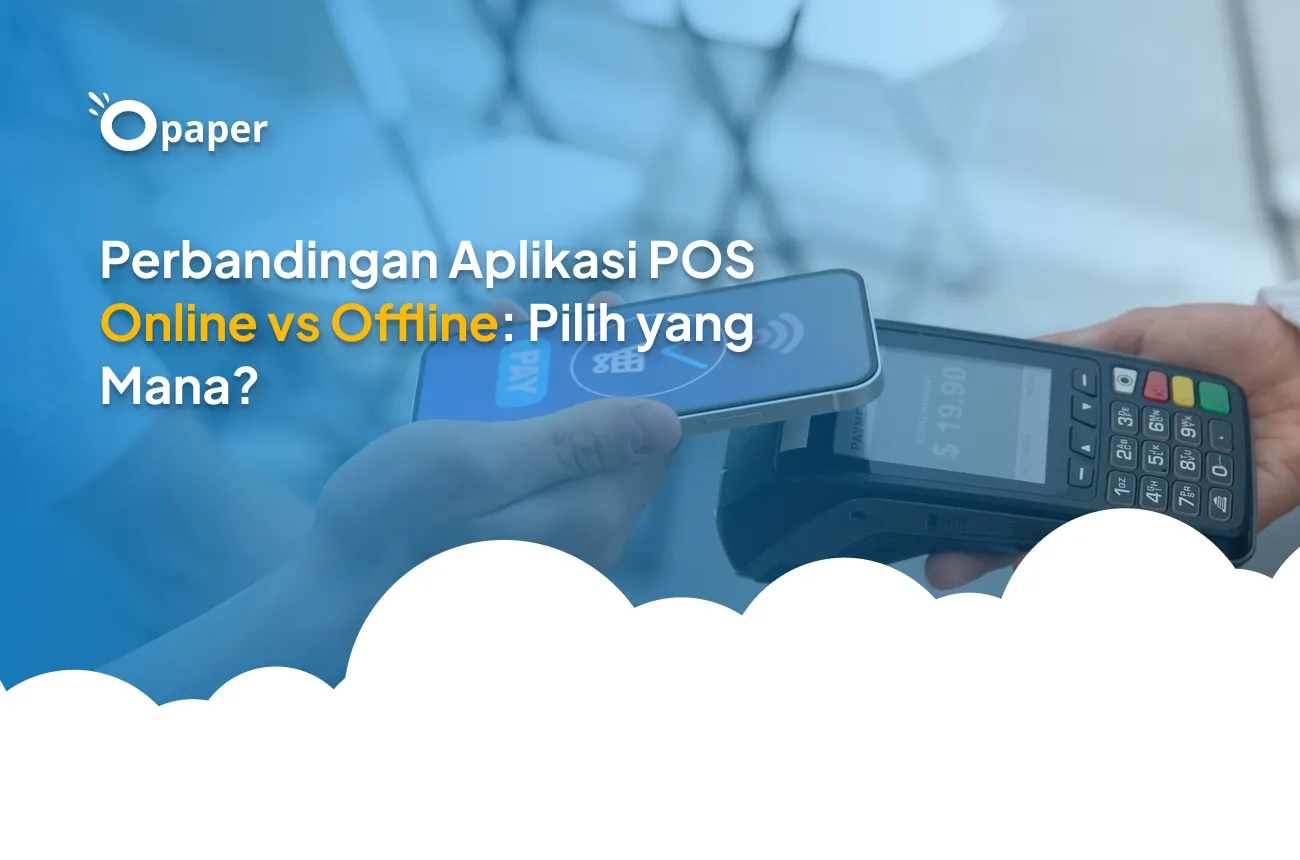Choosing a POS application for your business can be confusing. Should you go for an online or offline option? Each has its advantages and disadvantages that can affect the way you run your business. With an online POS, you can access data from anywhere. Meanwhile, an offline POS can still be used without an internet connection. So, which one is the best fit for your business? Let's take a look at the comparison!
Understanding Online and Offline POS
An online POS is a system that is connected to the internet. This system allows users to access data and perform transactions from anywhere, as long as there is an internet connection. On the other hand, an offline POS is a system that does not require an internet connection. This system is usually stored on a local computer, and data is also stored locally.
Read Also: Point of Sales (POS): A Must-Have Application for Culinary Businesses
Differences Between Online and Offline POS
Here is a comparison table between online and offline POS:
Advantages and Disadvantages of Online and Offline Point of Sale Systems
Advantages of Online POS
- Access from anywhere: Can be accessed as long as there is an internet connection, making it easier to monitor the business remotely.
- Automatic updates: Software updates are done automatically, ensuring you always have the latest features.
- Data backup: Data is automatically stored in the cloud, reducing the risk of data loss.
Disadvantages of Online POS
- Dependence on the internet: Cannot be used if there is no internet connection.
- Data security: Higher risk of data security if hacking occurs.
- Subscription costs: Usually requires a monthly or annual subscription fee.
Advantages of Offline POS
- Does not depend on the internet: Can still be used without an internet connection.
- Local data security: Data is stored locally, reducing the risk of external hacking.
- One-time cost: Usually only requires a one-time software purchase fee.
Disadvantages of Offline POS
- Limited access: Cannot be accessed from outside the physical location where the device is located.
- Manual updates: Requires manual software updates, which can be time-consuming and laborious.
- Risk of data loss: Higher risk of data loss if backups are not performed regularly.
Implementation of Online Point of Sale Systems
In addition to retail stores, online POS or cashier applications can be implemented in various business industries such as:
- Restaurants
- Cafes
- Food & Beverage service in Hotels and accommodations
- Food Courts
- Food and Beverage Franchises
Conclusion
Both online and offline POS have their respective advantages and disadvantages. The right choice depends on your needs and the type of business you have.
For medium and large culinary business entrepreneurs in Indonesia, Opaper App offers an ideal online POS solution. Opaper App is not only accessible from anywhere but is also cloud-based, supports mobility (mPOS), and is also supported by Artificial Intelligence technology.


